I wrote the following article in Japanese on “note”, so I will translate it into English.
https://note.com/tonyaharding/n/n992819cacb7d
I saw something like this on Twitter, and it seems even the big names who were staunchly against streaming services are now opening up to them.
“Thanks for finally allowing streaming!”
I often see tweets expressing such gratitude. Well, it’s certainly convenient to have music on streaming services, and I do spend quite a bit on movies and music.
But honestly, I don’t feel grateful at all. If there’s a song I absolutely want to listen to, I’ll find a way to buy and listen to it. If I can’t get my hands on it, I sometimes find myself obsessively trying to find it, laughing at myself in the process.
Also, people saying “thank you for allowing streaming,” well, those big names and major companies are doing it because they think it will be profitable, more like an investment. It doesn’t feel right to view it as some kind of salvation.
Now, let’s talk about us underground folks, who don’t even feel the pressure anymore when we’re told that music not on streaming services practically doesn’t exist.
For those who consider themselves to have a refined taste because they’ve listened to a lot of music, they probably don’t even have the time to notice our existence. So in that sense, there’s no conflict of interest.
But yesterday, at the live show and underground scene we were part of, there was music you could only hear there, and some truly amazing music you could only buy there.
It’s not on streaming services, so for those types of people, it might as well be “non-existent music.” Yet, someone traveled all the way from Kyushu and delivered an incredibly amazing vocal performance, bringing tears to the eyes of the event’s organizer and co-performers. A line even formed at their merch table.
That amazing performer might not have content that attracts tens of thousands of listeners on streaming services, but they go home with more income than that. This is something that happened right before my eyes yesterday.
In reality, there was opera singing, programmed rock, idol songs, soul, R&B, and improvisation… It truly was an all-genre, positively chaotic event with skilled performers gathering.
We’re very grateful that a good number of people came specifically to see us, Rehabilitation. We had a chance to catch up and chat while selling our merch, and for that, we’re truly thankful.
Not every event will go this well, but there will likely always be people who come to show their support like it’s a celebration.
How you interpret stories like this—as trivial tales, akin to something that doesn’t exist, or as a valid form of music and entertainment—is up to you.
Sure, the underground scene is a mixed bag, and in a world where terms like cost-performance and time-efficiency are thrown around, it might often seem like a poor bargain. Plus, it feels like there’s a strong tendency for everyone to avoid failure and view it as something negative.
I’ve also had those experiences where I paid to go to a live show, only to think it was a letdown… I hate that too. I’ve had that experience multiple times and continue to do so, laughing about it now.
But when it comes to music and art, I wonder, what does cost-performance or efficiency even mean? We’ve been failing repeatedly—no, we’ve barely had any so-called success experiences. It’s been 30 years since I first picked up a guitar and 20 years since I first stood in a DJ booth. Even as a listener, you don’t often stumble upon that jackpot of a song.
Maybe some would say people like us, who can’t even get their music on streaming services, should just quit music. But I’ll resist that notion. Maybe the day will come when I’ll feel like registering my music (I had some songs registered in the past), but…
There are people who care about music that’s not on streaming services, who come to watch our live performances. And I know fellow performers, musicians, and idols who put on fantastic performances for those people. We also want to somehow respond to that.
It’s truly wonderful to have your music listened to by someone anywhere in the world. But with that hope, countless musicians pay large fees to intermediaries to register their songs on these services, and the service providers make huge profits from users worldwide through monthly fees. And only a small fraction of musicians receive any returns from the massive play counts.
The system: live houses used to impose quotas on fledgling bands, and now invisible intermediaries take fees.
It seems there’s also a system where even unknown musicians can pay to be recommended by enthusiasts or writers. This has been around in the mainstream world for ages, but it allows you to gain a small exposure opportunity for a small price.
Still, for someone who’s not making it big, trying to get a big return on the internet seems like a whole different dimension. First and foremost, it’s about putting your all into performing for the people around you and the people in front of you, trying to gain fans even if it’s a small number.
It became a common story, but there are infinite competitors on streaming services and the internet. No matter how niche, you can usually find most things, which is also a good thing. The things I want to do, unless you’re a genius, have probably been done by someone else already.
So it’s not that the internet or streaming services are bad. It’s just that finding people and places that will somehow listen to your music, whether in real life or on the internet or through streaming, is really tough, and it’s crucial to keep approaching them.
I’ve come to painfully realize this: when an amateur pops back up on social media after being silent for a few years, saying, “I’m doing music again! Please listen! Come to the live show!” tweeting about it every day or writing long blog posts, only a handful of people will respond.
The old me would have given up by now. But I was wrong. The only thing we should really be doing is making good songs for those few people, creating good DJ mixes.
No matter how much we strategize, it’s still a “strategy,” a plan made for our convenience. There’s nothing more important than entertaining the people who have been listening to us and giving us the opportunity to perform live, like Ms. Kiyomi Kobayashi.
I didn’t mention any specific names because underground idols or people who travel from rural areas to Tokyo and work hard might have different thoughts about the scene.
But to take a contrary stance, there’s definitely a unique kind of inspiration and sound that only exists in these underground scenes, and I’ve come to reaffirm that I genuinely love those things.
To those people talking about Village Vanguard or subculture… If you’re looking for subculture, it’s right here…
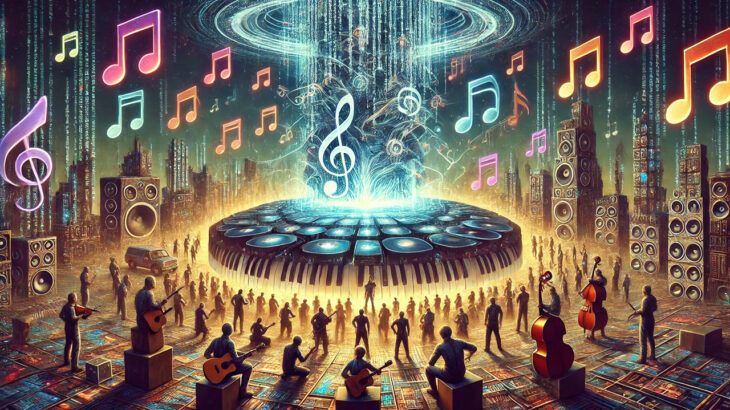



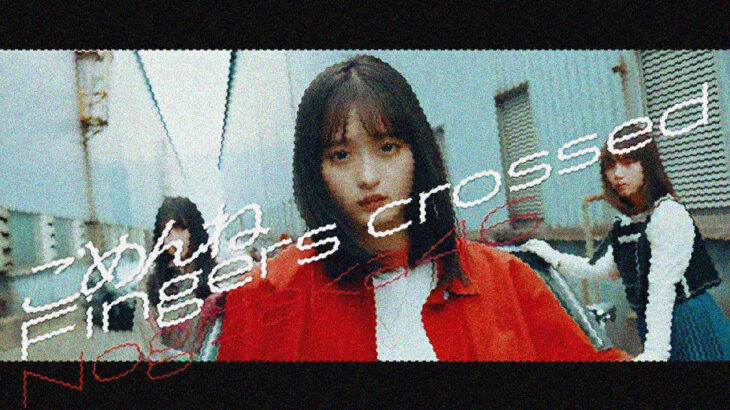

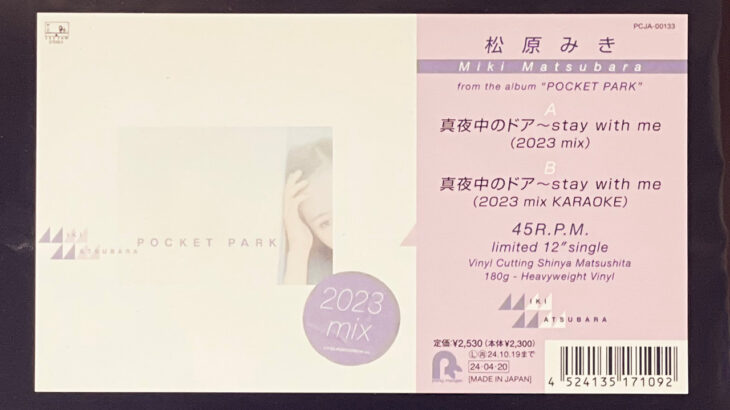
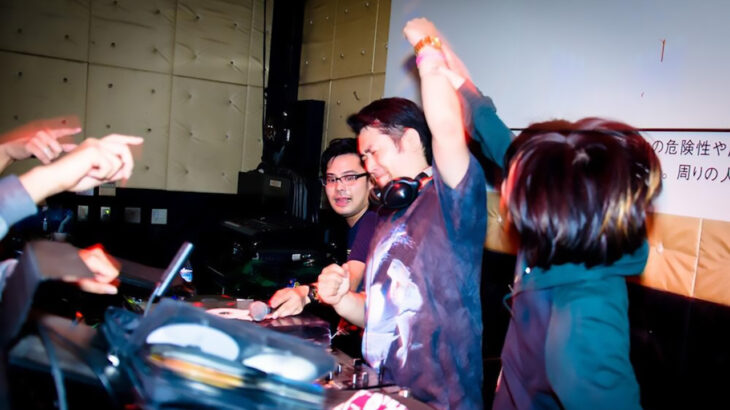
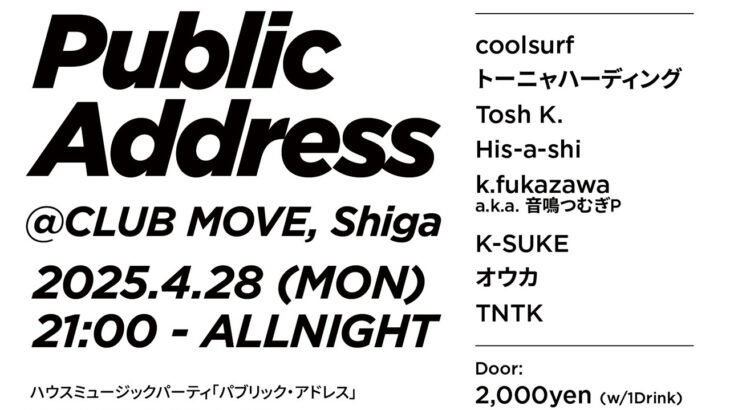

コメントを書く